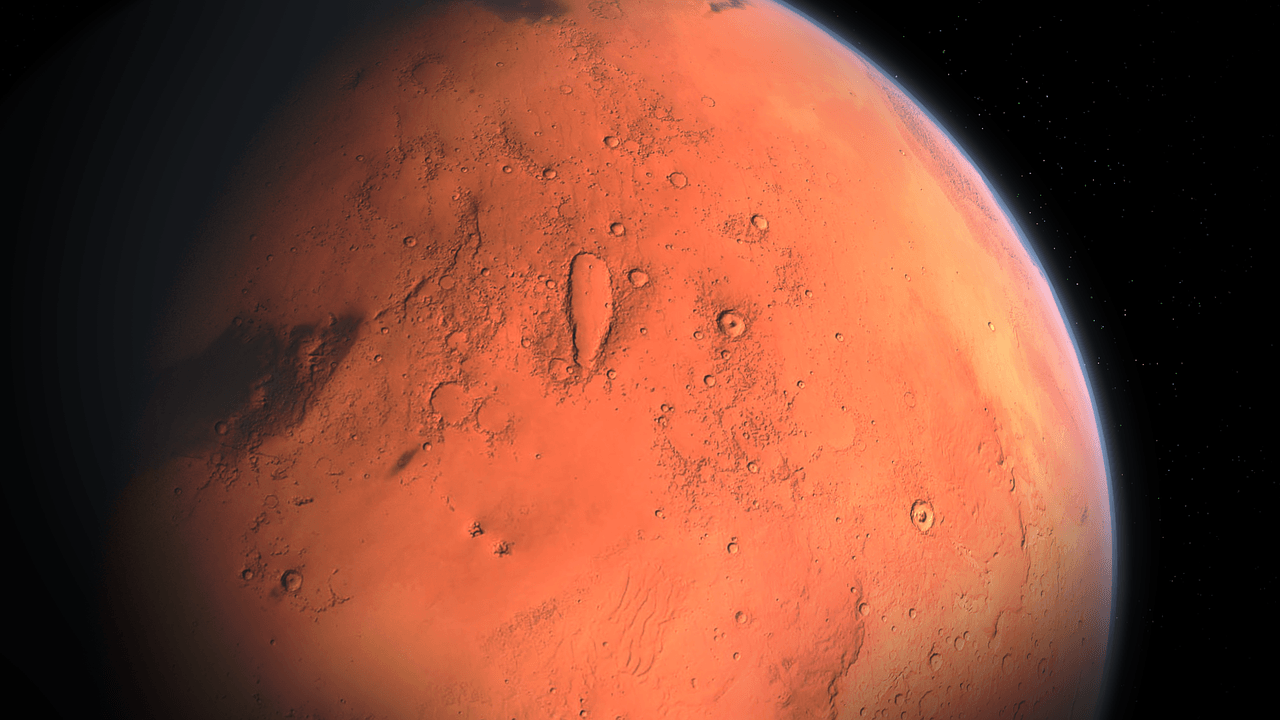The race to launch a mission to Mars is heating up, and there’s a serious race between Elon Musk, NASA, and now the space agency from Russia.
Russia on Mars
Not to be outdone by SpaceX or NASA, Vladimir Putin has stated that Russia also has plans to launch a mission to Mars within the next years – potentially even outpacing the United States when it comes to putting a man on the red planet.
In a new documentary, Putin elaborated on the plans.
“We are planning unmanned and later manned launches — into deep space, as part of a lunar program and for Mars exploration The closest mission is very soon, we are planning to launch a mission to Mars in 2019.”
It’s important to note that the first missions won’t be manned, so it’s certainly possible that SpaceX and NASA will beat Russia to the mission on Mars in terms of bringing a human to the surface of the planet, but it’s likely that the country won’t be far behind – and they could even be ahead.
The spaceship launching in 2019 won’t carry any people, but later missions will hopefully bring Russia into the select few that will successfully carry out a manned mission to Mars.
SpaceX and the Space Race
Elon Musk and his company SpaceX have been a staple in the news recently, with reports ranging from serious analysis of his capabilities to launch a mission to Mars to the somewhat comical event where he launched a Tesla car into outer space. All joking aside, Elon Musk is serious about his mission to Mars, and his eventual goal is to kickstart colonization of the foreign planet. He has plans to launch test flights in 2019, with cargo flights beginning as soon as 2022.
The space race to bring a man to the moon was a heated competition between Russia and the United States, and while tensions at the time were high, there was an overall advancement of technology that benefited everyone in the end – despite the fact that NASA astronauts were the first to make it to mars.
Vladimir Putin seems determined to beat out the United States this time around, and it’s true that the country’s space agency is well-equipped to do so. With rumors of extensive budget cuts to NASA, the agency has started to look elsewhere for funding and the ability to bring their astronauts into space. SpaceX is one such option, and it’s possible that a collaboration between the equipment at SpaceX and the scientific genius of the scientists at NASA could produce a mission to Mars that would beat out the Russians.
Anyone’s Game
In any case, we’re still several years out from a manned mission to Mars. While Elon Musk hopes to have his rockets launching in the next couple of years, there are often delays when it comes to development that is this stringent in nature, and the safety of the astronauts and the success of the mission is of the utmost priority. Even then, Musk has admitted that it’s likely that the first pioneers to go on a manned mission to Mars may be sacrificing their lives for the greater good. In a mission to an area that is so far away and with so little existing infrastructure, there are a huge amount of variables and things that could go wrong that could result in the deaths of those initial visitors. Still, if Russia, SpaceX, and NASA are to compete to be the first, we’ll likely see a manned expedition sooner rather than later. With competition and the desire to be the catalyst for further exploration of new planets, these agencies will no doubt push themselves to develop timely solutions to the problem of launching a manned mission to Mars.
SpaceX and NASA tend to be the agencies most covered in the news, but it’s important not to underestimate the capabilities of Russia. As a country with a rich history when it comes to space exploration, it’s certainly possible that they’ll come up from behind and beat these two agencies who have been working so diligently to bring the dream of a mission of mars to fruition. We’ll have to see in the next few years which player is the winner when it comes to the game of Mars exploration.





